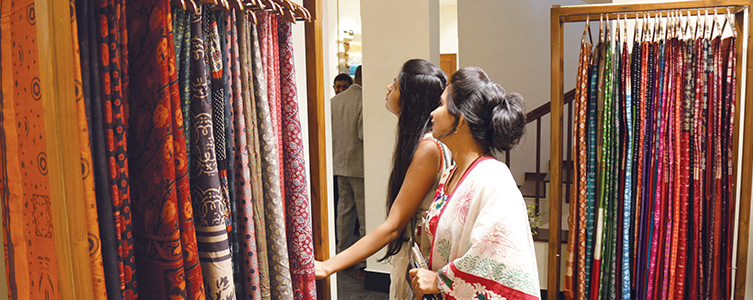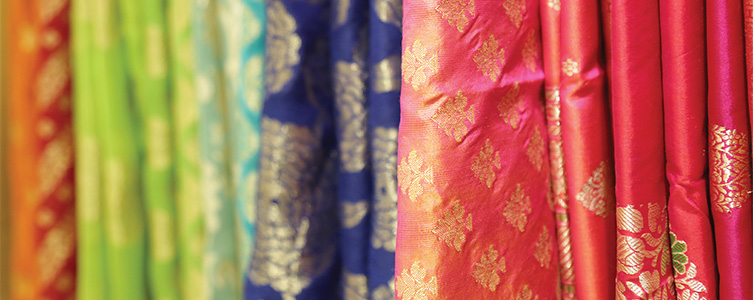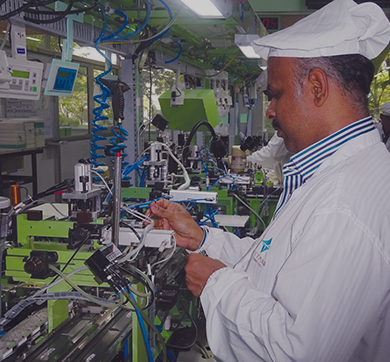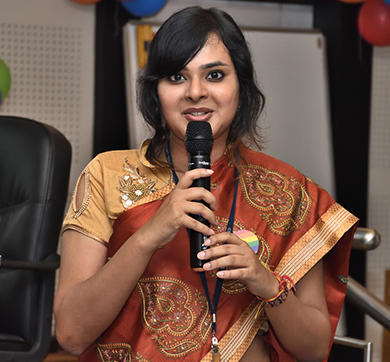June 2017 | 850 words | 3-minute read
There's something about Titan Company that refuses to let it rest on retail laurels secured. The urge to expand into and explore new terrain, with due diligence and without undue complications, typifies an enterprise that has established its presence in watches, jewellery, accessories and eyewear. Titan has now made time to take a taste of the ethnic-wear business.
Tapping into India’s rich traditions in ethnic weaves and clothes appears to be a natural progression for Titan. It is the basis for its latest venture, Taneira, which is all about garments sourced from the cultural heartlands of the country. The jewel in this collection is the saree—that enduring and exquisite icon of grace and elegance.
The first Taneira store, housed in a remodelled villa in Bengaluru's Indira Nagar, recently opened its doors to business. Sarees are the main draw here. They come from 20 different states of the country, each of them handwoven, and made from natural fibres such as cotton, silk and linen.

The Taneira team travelled the length and breadth of India to bring under one roof a fabulous collection that includes mugas from Assam; cottons from Chettinad; tussars from Bhagalpur; ikats from Gujarat; Andhra Pradesh and Orissa; chikankari from Lucknow; classical Banarasi silks and kanjeevarams; and heirloom pieces like Patan patolas from Gujarat and muslin jamdanis from Bengal.
Attractive prices
The store also sells lehengas, stoles, ready-to-wear blouses and exclusive yardage that can be converted into any kind of garment. Prices have been calibrated to attract the widest possible base of consumers, with the cost of a saree ranging from ₹2,000 to ₹250,000 (this for the stunning Patan patola version).
A second Taneira store is set to open soon — in Bengaluru's Jayanagar area — and the company is in the process of unrolling exhibitions all over the country to spread the message of the new brand among consumers.
The idea of having the saree as centrepiece at Taneira has a clear logic to it. "Women like to have sarees from every part of the country," says Shyamala Ramanan, business head of Taneira. "If you already have a bandhni, you would like to own an ikat, or a South Indian cotton. The list is endless."
Ms Ramanan, who jokes about asking her boss for a clothing allowance as part of the job, emphasises the charm of shopping at this exclusive store. "Taneira aims to deliver a differentiated retail experience. It's a place where customers can touch and feel the purity of the fabric and admire the craft that goes into their making." What Taneira offers is unique in many ways. Take, for instance, those who may not buy a piece at first chance, but then change their mind and return, only to find it gone.

A new vision
While there was no test marketing before launch, Taneira had a 'trunk show' at the Taj Westend in Bengaluru earlier this year. The vision for the business was firmly in place by then. “We wanted to make products that not just added value for the customer, but also for the industry,” says Ajoy Chawla, senior vice president, strategy and business incubation, at Titan Company.
The saree-making business is mostly disorganised. Changing this facet of the trade for the better is among Taneira's objectives. The brand currently works with 20 of the 400-odd weaver clusters (groups of weavers with a master weaver or studio) active in India.
The community connect became apparent to Ms Ramanan during the course of her interactions with weavers in the interiors of India. A Bengal weaver asked her why the Tatas had taken so long to get into the business. Says Ms Ramanan, "He told me he was happy if he could continue weaving as it meant he could stay in the village now and support his family, instead of seeking a livelihood in a city."
Crafted by women
Ms Ramanan recalls another incident, this one from Pochampally, Telangana. There she found a weaver cluster made up almost entirely of young women. This was so, she discovered, because most of the men had gone off to urban India to find work. So the women learned the craft and found a way to earn additional income. "It was super awesome to see young women with earphones belting out the latest music, while working on the looms," she says.
Revitalising the traditional in craft and design is one of Taneira's goals. But while traditional design will remain at the core, a contemporary take will extend the appeal of the freshly minted brand to young buyers. The master weavers, weaving societies, designers and studios Titan has been involved with in the venture are excited about this opportunity to blend old and new.
“We have a long way to go,” says Ms Ramanan. It's a journey that promises to be enlightening and rewarding — for Taneira and everybody associated with it.
—Kalpana Shah













